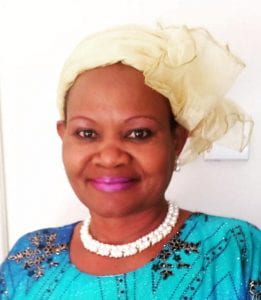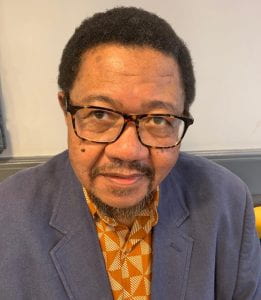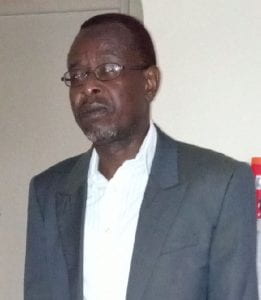MABATI-CORNELL KISWAHILI PRIZE FOR AFRICAN LITERATURE
Announcement of 2021 Judges
The Chairman of the Board of Trustees of Mabati-Cornell Kiswahili Prize for African Literature, Abdilatif Abdalla, is pleased to announce the Judges of the 2021 Kiswahili Prize as Prof. Aldin K. Mutembei, Dr. Salma Omar and Dr. Joseph Nyehita Maitaria. He also announced that Prof. Rocha Chimerah and Dr. Hamisi Babusa will judge The Nyabola Prize, a special 2021 award for youth writing science fiction and speculative fiction in Kiswahili, for writers aged between 18 and 35.
“The Mabati-Cornell Kiswahili Prize for African Literature has seen an unprecedent increase in the number of entries, from 96 in 2019 to 256 in 2021. This year, the entries also came from 13 countries across the world, including Tanzania, Kenya, Uganda, Burundi, Uganda, Egypt, Nigeria, and the African diaspora in the USA, Canada, Germany, Switzerland, Finland and the Netherlands. “It is very encouraging to see that the Prize is not only truly pan-African, but also extends beyond the continental borders,” said Munyao Kilolo, the Prize Administrator.
The Chair of the Board of Trustees, Abdilatif Abdalla, said, “It makes my heart dance with joy to see how increasingly responsive the participants are and the higher quality of entries submitted as the Prize gets more widely known and becomes more inclusive. It is my earnest hope that this competition will ultimately assist in realizing the Pan-African dream which we have been yearning for all these years. I also would like to urge female writers to participate more in order to bridge the gender gap which currently exists.”
Ms. Nanjala Nyabola, founder of the Nyabola Prize, a special award for 2021 for youth writing science fiction and speculative fiction in Kiswahili, said “Its very important for Kiswahili language communities to remain involved in the development and use of new concepts in technology,” said Nyabola, “and what better way to do that than to support exciting and captivating storytelling around science and technology”.
The judges will work together to select a shortlist that will be announced in November 2021. The winning entries in each category will be announced at an awards ceremony in mid- December in Dar es Salaam, Tanzania.
After suspending the 2020 edition due to the challenges wrought by the Covid-19 pandemic, the Prize founders, Dr. Lizzy Attree and Prof. Mukoma Wa Ngugi, are excited to see this re-energized participation.The growth of the Prize, from strength to strength, is an excellent example that is encouraging other prizes in African languages.
Founded in 2014 by Dr. Lizzy Attree and Prof. Mukoma Wa Ngugi (Cornell University), the Prize has the express goal of recognizing writing in African languages and encouraging translation from, between and into African languages.
2021 Judges:
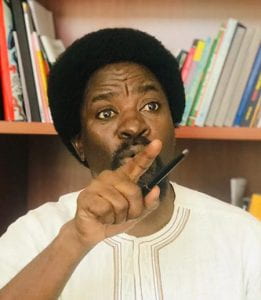 Prof Aldin K. Mutembei (BA Ed.; MA Ling (Dar); MA (Lit); PhD (Leiden), holds a Chair as the Mwalimu Julius Nyerere Professor in Kiswahili at the University of Dar es Salaam. He is a former Director of the Institute of Kiswahili Studies; and the current Director of the Confucius Institute at the University of Dar es Salaam. He teaches Kiswahili/African Literature, Communication, Literary Theories and Orature and Kiswahili language to speakers of other languages. He has published four literary works, among which is a novel, Kisiki Kikavu. (E & D Limited, 2005), and a literary theory book, Korasi Katika Fasihi: Nadharia Mpya ya Uhakiki (Institute of Kiswahili Studies, University of Dar es Salaam, 2012).
Prof Aldin K. Mutembei (BA Ed.; MA Ling (Dar); MA (Lit); PhD (Leiden), holds a Chair as the Mwalimu Julius Nyerere Professor in Kiswahili at the University of Dar es Salaam. He is a former Director of the Institute of Kiswahili Studies; and the current Director of the Confucius Institute at the University of Dar es Salaam. He teaches Kiswahili/African Literature, Communication, Literary Theories and Orature and Kiswahili language to speakers of other languages. He has published four literary works, among which is a novel, Kisiki Kikavu. (E & D Limited, 2005), and a literary theory book, Korasi Katika Fasihi: Nadharia Mpya ya Uhakiki (Institute of Kiswahili Studies, University of Dar es Salaam, 2012).
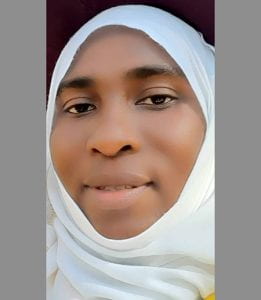 Dr. Salma Omar Hamad was born in Pemba, Zanzibar. She is currently a Lecturer of Kiswahili Literature and Linguistics at The Open University of Tanzania. She did her BA in Education (Hons) at State University of Zanzibar (SUZA); majoring in Kiswahili; MA in Linguistics at the University of Dar es Salaam, specializing in Kiswahili; and a PhD in Kiswahili from SUZA. She is the author of several short stories awaiting publication and has also contributed to short story anthologies, such as her story “Shibe Inatumaliza” in a collection entitled Tumbo Lisiloshiba na Hadithi Nyingine (Longhorn Publishers, 2016).
Dr. Salma Omar Hamad was born in Pemba, Zanzibar. She is currently a Lecturer of Kiswahili Literature and Linguistics at The Open University of Tanzania. She did her BA in Education (Hons) at State University of Zanzibar (SUZA); majoring in Kiswahili; MA in Linguistics at the University of Dar es Salaam, specializing in Kiswahili; and a PhD in Kiswahili from SUZA. She is the author of several short stories awaiting publication and has also contributed to short story anthologies, such as her story “Shibe Inatumaliza” in a collection entitled Tumbo Lisiloshiba na Hadithi Nyingine (Longhorn Publishers, 2016).
 Dr. Joseph Nyehita Maitaria is a Senior Lecturer and the Chairperson of the Department of Humanities and Languages in the School of Education and Social Sciences (SESS), Karatina University, Kenya. He holds a BA (Education) in Kiswahili and Christian Religious Education (Kenyatta University); MA in Kiswahili (Kenyatta University) and PhD in Kiswahili Literary Genres and Kiswahili Poetry (Kenyatta University). He is a committee member of various Kiswahili associations and is presently the Secretary of the East Africa Kiswahili Association (CHAKAMA) and Kiswahili Scholars Association of Kenya (CHAKITA). An author of Kiswahili books, he has also published widely in academic journals in the area of Kiswahili Poetry.
Dr. Joseph Nyehita Maitaria is a Senior Lecturer and the Chairperson of the Department of Humanities and Languages in the School of Education and Social Sciences (SESS), Karatina University, Kenya. He holds a BA (Education) in Kiswahili and Christian Religious Education (Kenyatta University); MA in Kiswahili (Kenyatta University) and PhD in Kiswahili Literary Genres and Kiswahili Poetry (Kenyatta University). He is a committee member of various Kiswahili associations and is presently the Secretary of the East Africa Kiswahili Association (CHAKAMA) and Kiswahili Scholars Association of Kenya (CHAKITA). An author of Kiswahili books, he has also published widely in academic journals in the area of Kiswahili Poetry.
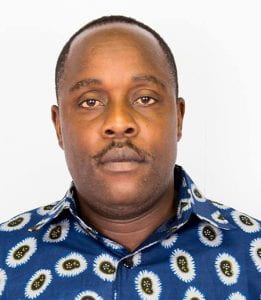 Dr. Hamisi Babusa is a Lecturer of Kiswahili and Language Education at Kenyatta University. He has also taught in other universities, among them St. Lawrence University, in Canton, NY, USA. Among his publications are Kamusi Teule, a dictionary of Kiswahili proverbs with their equivalents in English, several short stories and poems in various anthologies. Dr. Babusa has also written children novellas like Binti Kitabu and also Makumba, science fiction series, for which in 2018 he was recognized as one of the top twenty scientists in Kenya.
Dr. Hamisi Babusa is a Lecturer of Kiswahili and Language Education at Kenyatta University. He has also taught in other universities, among them St. Lawrence University, in Canton, NY, USA. Among his publications are Kamusi Teule, a dictionary of Kiswahili proverbs with their equivalents in English, several short stories and poems in various anthologies. Dr. Babusa has also written children novellas like Binti Kitabu and also Makumba, science fiction series, for which in 2018 he was recognized as one of the top twenty scientists in Kenya.
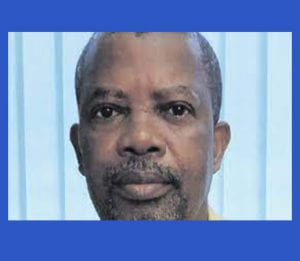 Prof Rocha Chimerah is a Professor of Kiswahili Linguistics at Pwani University in Kenya. He received his PhD from Ohio University in the USA in 1989, taught in Rwanda for 8 years and has published many papers in refereed journals in East Africa and abroad in the areas of Kiswahili Linguistics, Language and Literature. He has written a number of acclaimed novels and plays. Among his published novels are Nyongo Mkalia Ini and Siri Sirini ( a three-volume sequel). He won the Noma Award in 2000 for his co-authorship of the book Ufundishaji wa Fasihi: Nadharia na Mbinu. His book, Kiswahili: Past, Present and Future Horizon was listed in the 100 Best African Books of the 20th Century Award in Harare, Zimbabwe, in 2002.
Prof Rocha Chimerah is a Professor of Kiswahili Linguistics at Pwani University in Kenya. He received his PhD from Ohio University in the USA in 1989, taught in Rwanda for 8 years and has published many papers in refereed journals in East Africa and abroad in the areas of Kiswahili Linguistics, Language and Literature. He has written a number of acclaimed novels and plays. Among his published novels are Nyongo Mkalia Ini and Siri Sirini ( a three-volume sequel). He won the Noma Award in 2000 for his co-authorship of the book Ufundishaji wa Fasihi: Nadharia na Mbinu. His book, Kiswahili: Past, Present and Future Horizon was listed in the 100 Best African Books of the 20th Century Award in Harare, Zimbabwe, in 2002.
Notes to Editors
The Prize is primarily supported by Mabati Rolling Mills of Kenya (a subsidiary of the Safal Group), The Office of the Vice Provost for International Affairs at Cornell University, the Africana Studies Center at Cornell University and the Ngugi wa Thiong’o Foundation.
Safal Investments Mauritius Ltd. and its subsidiaries (which include Mabati Rolling Mills Ltd of Kenya and ALAF Limited in Tanzania) are collectively known as The Safal Group.
The Safal Group is the largest producer of Steel Roofing on the African continent with 36 operations in 12 countries. www.safalgroup.com
Mabati Rolling Mills Ltd (MRM) is the largest producer of steel roofing in Kenya. Established more than 50 years ago, the company is a leading innovator in its field. MRM led Africa in the manufacture of coated steel using the most advanced corrosion protection technology available worldwide, and its roofing brands are household names which are known and trusted by millions of consumers. www.mabati.com
The Safal MRM Foundation, based in Kenya, is a philanthropic enterprise of Mabati Rolling Mills and the Safal Group. It founded, and continues to fully manage, both the Mabati Technical Training Institute, and the Mabati Medical Centre, both in Mariakani, Kenya. safalmrmfoundation.org
ALAF Limited (ALAF) is Tanzania’s leading steel roofing manufacturer. Established in 1960, ALAF has always, and continues to be, a key player in the development of the country’s construction sector. ALAF is a fully integrated operation, not only making steel roofing, but also producing the metal coated coils used by these roofing operations. ALAF manufactures metal tubing and piping for various applications. alaf.co.tz
The Africana Studies and Research Center enriches the academic, cultural, and social environments on the Cornell University Ithaca campus. Website: http://www.asrc.cornell.edu
Mkuki na Nyota Publishers is an independent, vibrant Tanzanian imprint publishing relevant, progressive, liberating, affordable and entertaining content. Established in 1991, Mkuki na Nyota Publishers emerged in response to the general absence of high quality, independent publishing in Tanzania. Its mission statement is to publish, “Relevant Books, Affordable Books, and Beautiful Books.” They have successfully published 2017 poetry winner, Dotto Rangimoto’s Mwanangu Rudi Nyumbani (December 2018) and published Ali Hilal Ali’s novel Mmeza Fupa (January 2019). http://www.mkukinanyota.com
East African Educational Publishers is one of Africa’s leading publishers. EAEP strives to juggle the seemingly contradicting values of publishing works of enduring value cutting across the social, cultural, political and economic spectrum of society and at the same time excelling as a viable business that is ready to face the realities and vagaries of the technology age. They published 2015 winners A.S. Manyanza and Enock Maregesi’s novels Penzi la Damu and Kolonia Santita in 2016. http://www.eastafricanpublishers.com
The Africa Poetry Fund promotes and advances the development and publication of the poetic arts through its book series, contests, workshops, and seminars and through its collaborations with publishers, festivals, booking agents, colleges, universities, conferences and all other entities that share an interest in the poetic arts of Africa. Website: http://africanpoetrybf.unl.edu/
Ngugi Wa Thiong’o Foundation is powered by the interest and passion to raise the visibility of African Languages in Kenya, Africa and the world, as vehicles for performance, creativity, innovations, and scholarship. It sees African languages as the new intellectual frontier in everything from culture, biological sciences, technology and medicine. http://ngugiwathiongofoundation.org
Board of Trustees: Abdilatif Abdalla (Chair), Mukoma Wa Ngugi, Lizzy Attree, Happiness Bulugu, Walter Bgoya, Henry Chakava, Chege Githiora, Clarissa Vierke, Farouk Topan, Carole Boyce Davies, and Ngugi Wa Thiong’o.
Administrator: Munyao Kilolo.
The website is: https://kiswahiliprize.cornell.edu/
Twitter handle: @KiswahiliPrize
Facebook Page: https://www.facebook.com/pages/Mabati-Cornell-Kiswahili-Prize-for-African-Literature/1534905843433822
Contact information: Prof. Mukoma Wa Ngugi, Cornell University, kiswahiliprize@cornell.edu, Dr. Lizzy Attree, kiswahiliprize@cornell.edu, Munyao Kilolo kiswahiliprize@cornell.edu.
2019 Judges:
Prof. Clara Momanyi is a Kenyan who has been teaching Kiswahili Literature in Kenyan universities for more than 20 years. Her Master’s dissertation was on Kiswahili Literature and Gender Issues. She is also a novelist, and writes short stories and poetry. Her book, Ushindi wa Nakate (Nakate’s Victory), won the 2015 Jomo Kenyatta-Textbook Centre Prize for Literature, in the category of Children’s Literature. Her other books include Tumaini and Pendo Katiia Shari.
Her academic papers have been published in various recognized journals. She currently concentrates on research in Kiswahili Literature as well as translating national and international documents into Kiswahili from English.
In 2015 Prof. Momanyi was one of the judges of the inaugural edition of the Mabati-Cornell Kiswahili Prize for African Literature. She has also adjudicated in other Literature Prizes, such as the Jomo Kenyatta Prize for Literature, Kenya, both in Kiswahili and English.
Ahmed Rajab is a Zanzibari-born international journalist, political analyst, essayist and a columnist for Tanzania’s premier weekly Raia Mwema. A philosophy graduate (University of London), he also holds a post-graduate diploma in Urbanisation in Developing Countries (University College, London), and a Master’s degree in Modern African Literature (Sussex University). His dissertation was on the Négritude poet David Diop.
Ahmed has worked for the BBC World Service, Index-on-Censorship (he was its first Africa and Middle East researcher-cum-editor), Africa Events, Africa Analysis, as well as Unesco and the UNDP. From 2006-2009 he was based in Dubai where he was Head of Newsroom (Middle East/Asia Bureau) for IRIN, the then UN humanitarian news agency and he later spent another three years in Nairobi as Managing Director of Universal TV. He now works as a consultant and is affiliated to the Kaduna-based Gusau Institute. Ahmed’s poems are included in the anthology African New Voices (Longman, 1997). He has translated into Swahili two children books which were recently published by Salaam Publishing in London. Ahmed Rajab was one of the judges for the 2018 Caine Prize for African Writing.
Dr. Amiri Swaleh is a Senior Lecturer in the Kiswahili Department, University of Nairobi. He has been teaching Kiswahili Literature and Socio-Linguistics for the last 27 years and is currently the Head of Kiswahili Literature. Besides his academic papers published in various journals, he is also a writer of short stories, which have been included in collections such as Kosa la Nani? na Hadithi Nyingine (2018).
His main interests include research and criticism of Kiswahili Literature, especially in areas of gender, old Kiswahili Poetry, history of Kiswahili, language and the development of society, and political systems.
